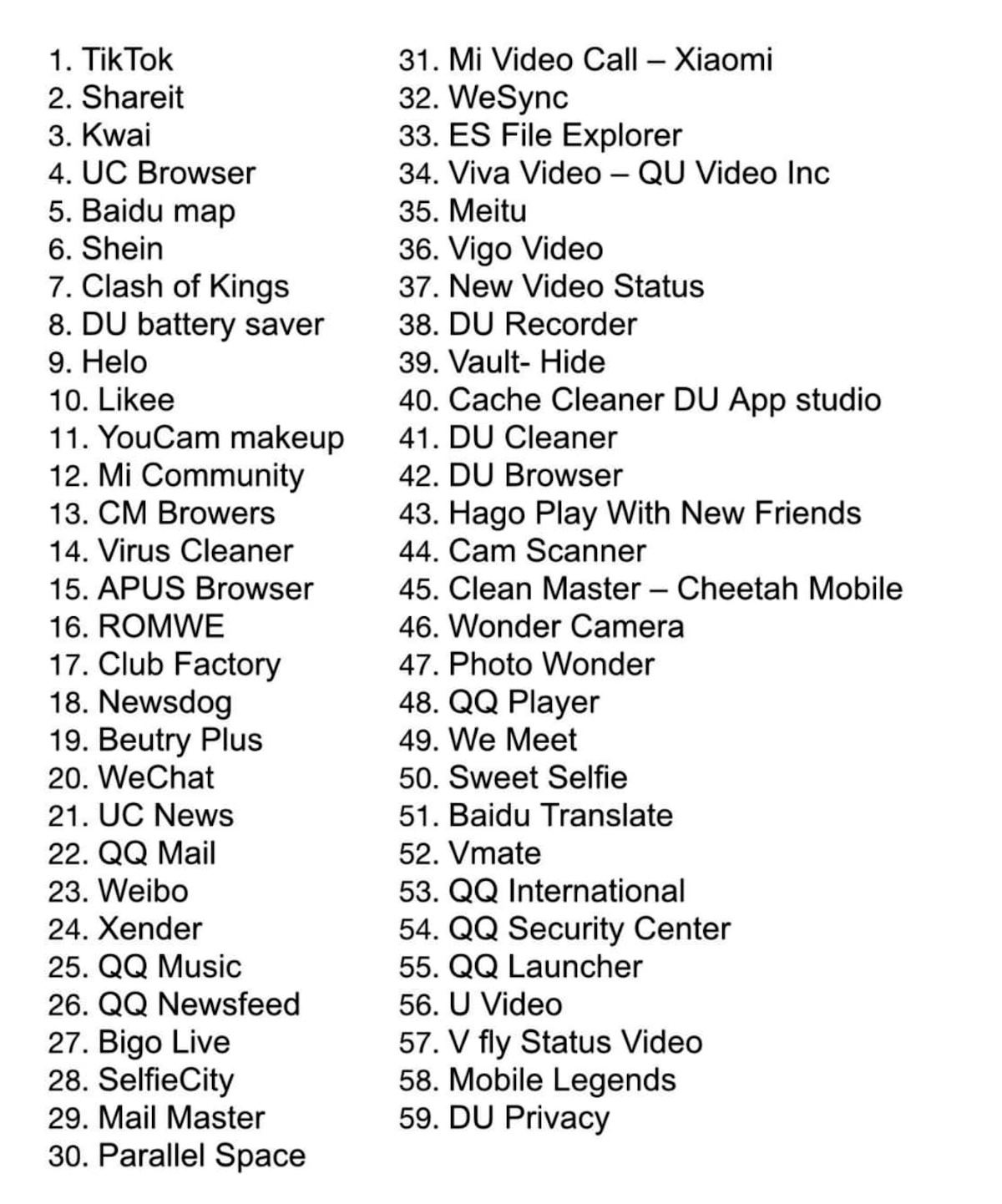The Indian government on Monday evening said it was banning 59 apps developed by Chinese firms over concerns that these apps were “engaged in activities which is prejudicial to sovereignty and integrity of India, defence of India, and security of state and public order” in what is the latest standoff between the two most populated nations in the world.
ByteDance’s TikTok, which counts India as its biggest market, Community and Video Call apps from Xiaomi, which is the top smartphone vendor in India, UC Browser, UC News, Shareit, CM Browser, Club Factory (India’s third-largest e-commerce firm), ES File Explorer are among the 59 apps that India’s Ministry of Electronics and IT have ordered to ban.
Tarun Pathak, an analyst at research firm Counterpoint, said the order would impact roughly one in three smartphone user in India.
“The Computer Emergency Response Team (CERT-IN) has also received many representations from citizens regarding security of data and breach of privacy impacting upon public order issues,” the Indian government agency said.

The apps India is banning
It’s unclear what exactly the “ban” means and whether mobile operating system makers, and internet service providers are expected to comply. All of the aforementioned apps are currently live on Google Play Store and Apple’s App Store in India. We have reached out to Google, Apple, ByteDance and several others for comment.
New Delhi said it had received “many complaints from various sources including several reports about misuse of some mobile apps available on Android and iOS platforms for stealing and surreptitiously transmitting users’ data in an unauthorized manner to servers which have locations outside India.”
Monday evening’s announcement is the latest standoff between the two neighboring nations following a deadly border earlier this month that stoked historical tensions between them.
Jayanth Kolla, an analyst at research firm Convergence Catalyst, told TechCrunch the move was surprising and will have huge impact on Chinese firms, many of which count India as their biggest market. He said banning these apps would also hurt livelihood of several people who count on the aforementioned apps for their businesses.
An anti-China sentiment has been gaining mindshare in India in recent weeks ever since more than 20 Indian soldiers were killed over a clash in the Himalayas earlier this month. “Boycott China” has been trending on Twitter in India ever since as a growing number of people posted videos about destroying Chinese-made smartphones, TVs and other products.
Chinese smartphone makers command more than 80% of the smartphone market in India, which is the world’s second largest.
More to follow…
from Apple – TechCrunch https://ift.tt/3dQljhD
Comments
Post a Comment